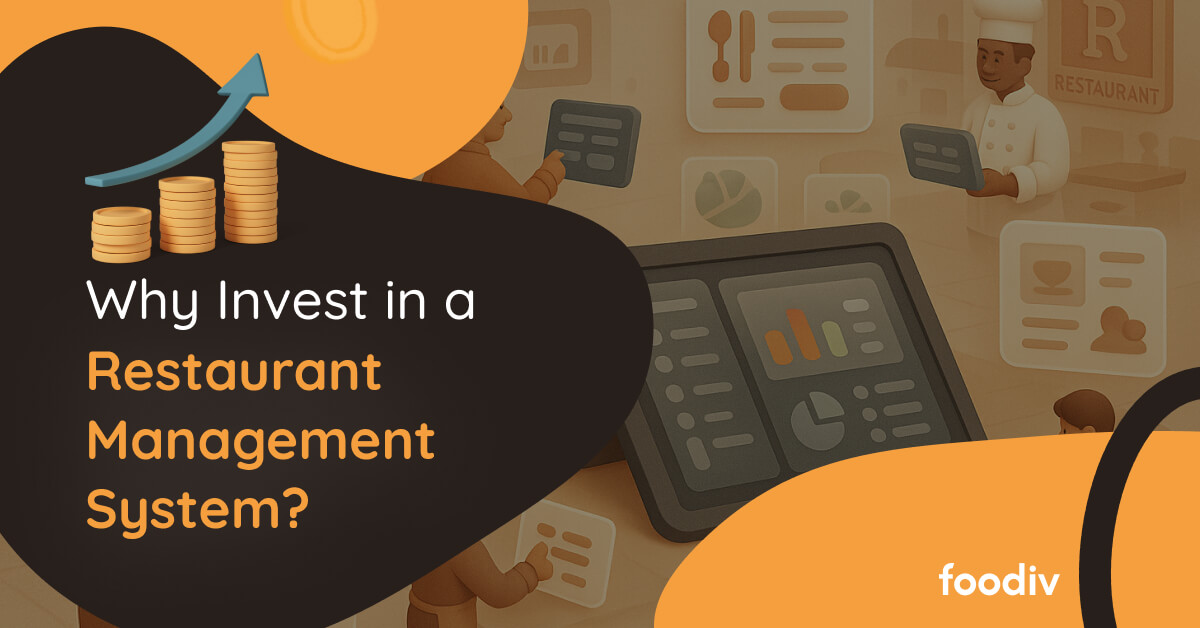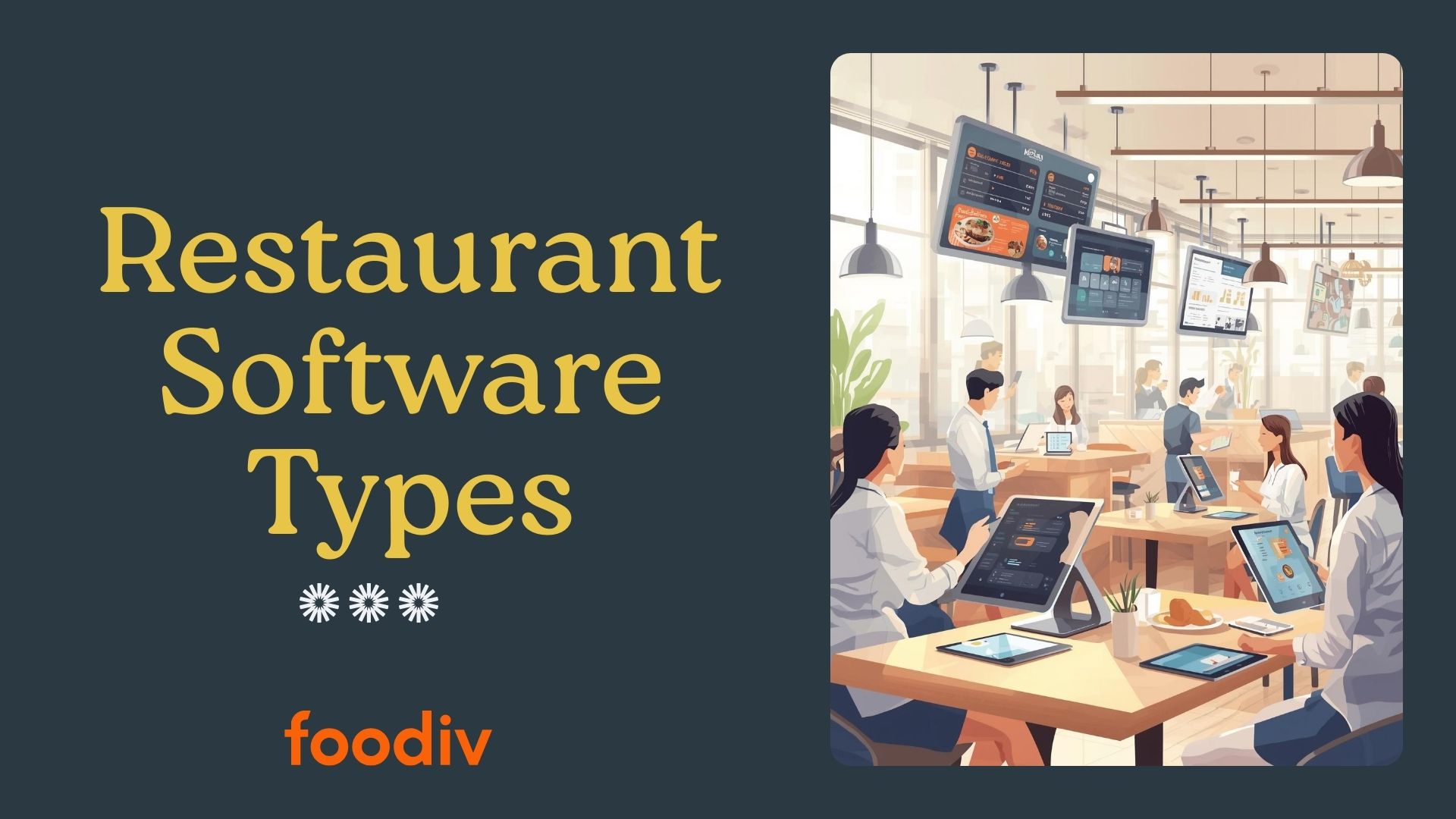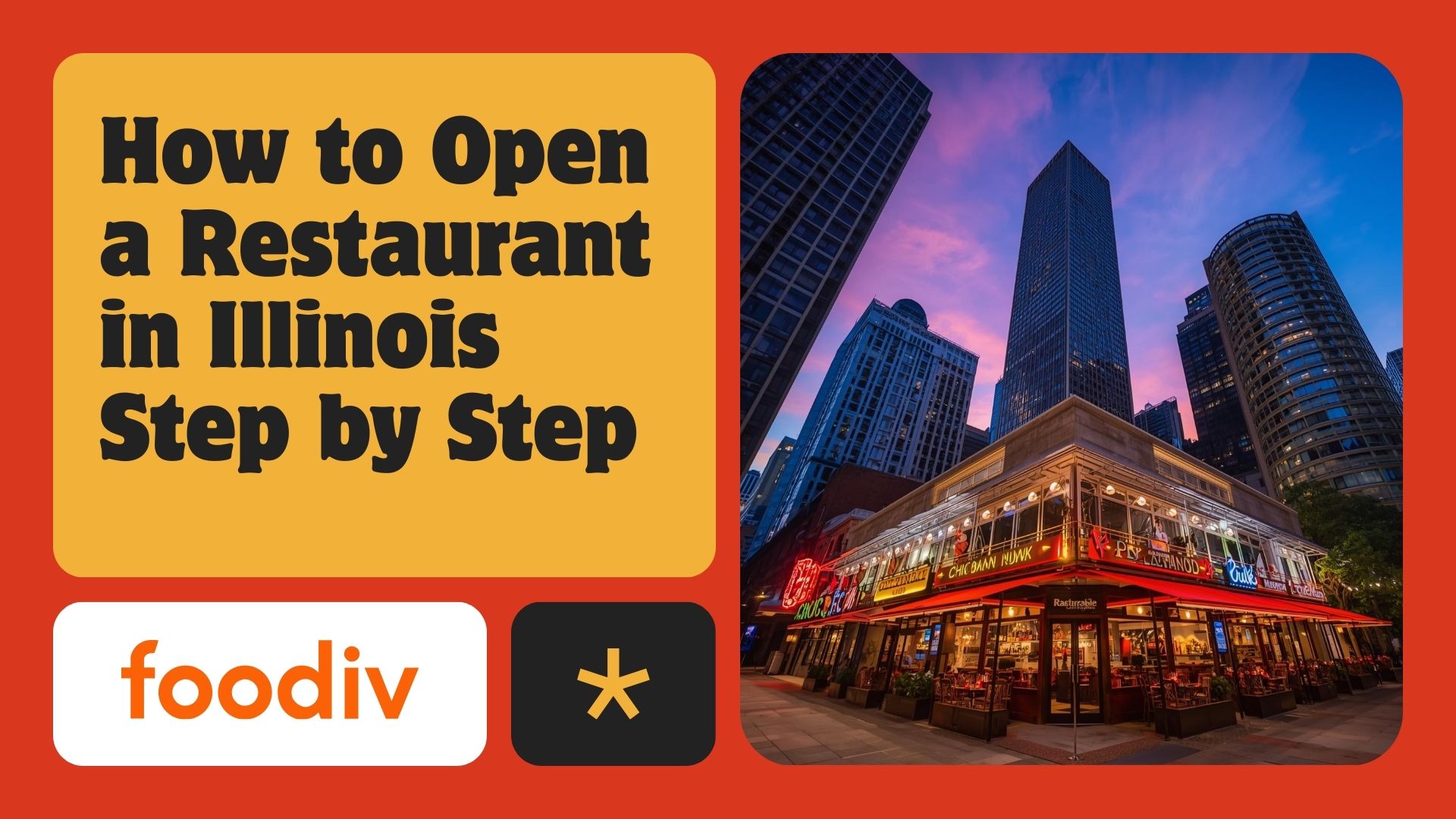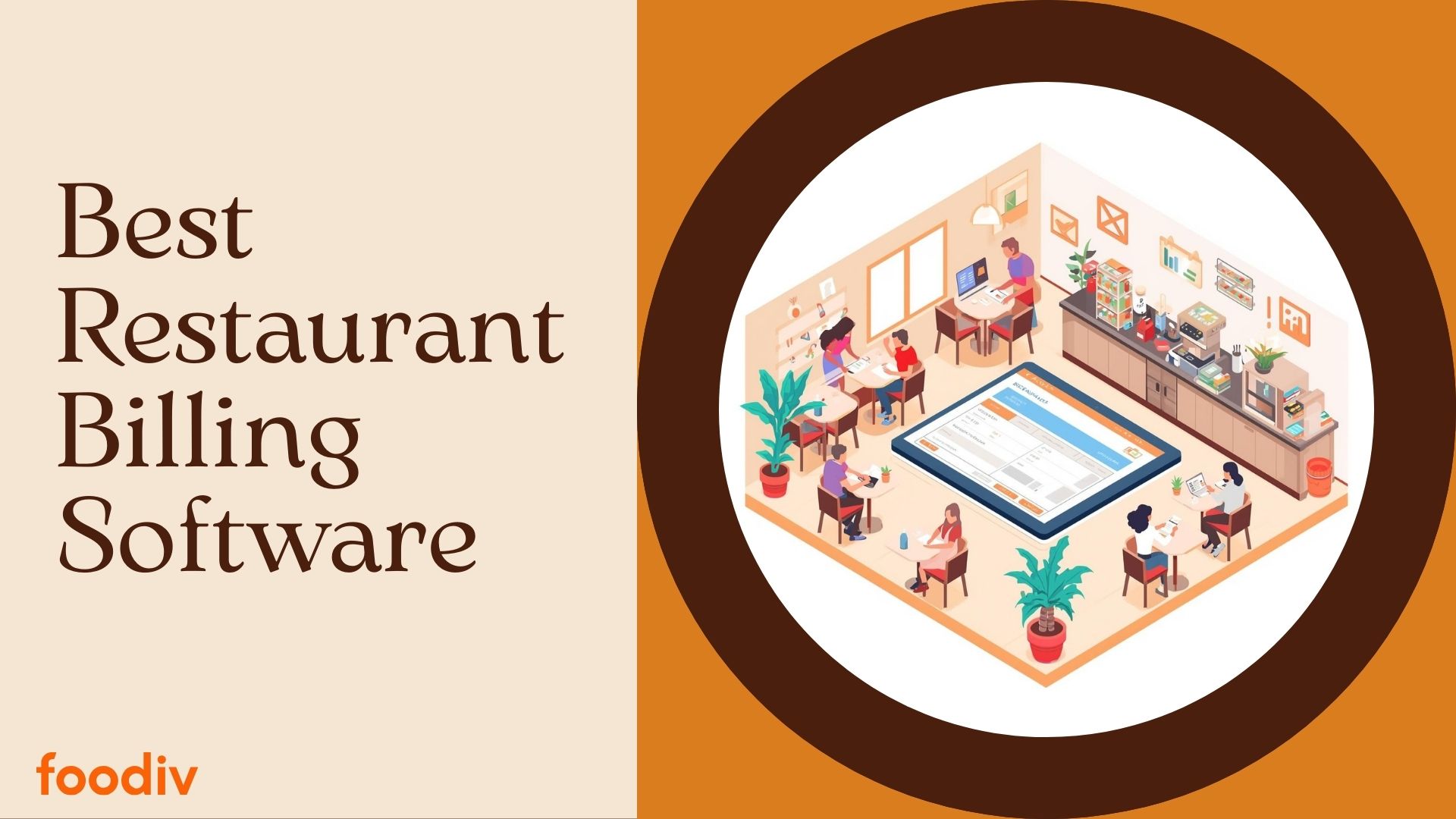
Managing a restaurant involves more than serving food. Daily operations require accurate order tracking, fast service, inventory control, staff scheduling, and customer engagement. Without a clear system in place, these responsibilities can become overwhelming and result in lost revenue and customer dissatisfaction.
Technology is now at the heart of every successful restaurant. A restaurant management system helps you bring all your operations together in one place. It connects your point of sale, inventory, staff scheduling, and customer service so everything runs efficiently and accurately.
Whether managing a single café, a cloud kitchen, or a chain of food outlets, using a digital ordering system for restaurants supports consistent service and better decision-making. Many food businesses now invest in this software to gain control, reduce costs, and grow with confidence.
What Is a Restaurant Management System?
A restaurant management system (RMS) is a complete software solution that helps you manage every part of your restaurant from one place. It connects sales, inventory, staff, and customer service into a single platform. Instead of using separate tools for each task, it gives you one connected system that keeps everything organized and easy to track.
In modern restaurant operations, a management system acts as the central brain of your business. It keeps all departments in sync and ensures smooth communication between the front and back of house. With it, you can make faster decisions, reduce waste, and deliver a better experience for your guests.
Types of Restaurant Management Systems
Every restaurant operates differently, so choosing the right management system depends on how your business runs. There are two main types of restaurant management systems: traditional systems and cloud-based systems. Each has its own approach to managing daily operations.
Traditional Systems
Traditional restaurant systems store data locally on computers or servers inside the restaurant. They often require manual updates and are limited to on-site use. These systems can handle point-of-sale functions, billing, and basic reports, but they usually need extra hardware and regular maintenance. If something goes wrong, troubleshooting must be done in person, which can lead to downtime.
Cloud-Based Systems
Cloud-based restaurant management systems work through the internet. They store all data securely on remote servers, allowing you to access information anytime from a phone, tablet, or laptop. Updates happen automatically, and information is synced in real time across locations. These systems make it easier to manage multiple outlets, track performance, and adjust operations from anywhere.
Here’s a detailed comparison between traditional restaurant systems and cloud-based restaurant management systems to help you understand which option best fits your business needs.
| Feature |
Traditional Systems |
Cloud-Based Systems |
| Installation & Setup |
Installed on local servers or hardware; setup can be time-consuming and costly. |
Runs via the internet; quick setup without heavy equipment or servers. |
| Internet Dependency |
Operates offline; internet needed only for limited functions. |
Requires internet access; data and tools are hosted online. |
| Accessibility & Control |
Access restricted to the restaurant location; limited remote control. |
Accessible anytime, anywhere from phone, tablet, or laptop. |
| Updates & Maintenance |
Manual updates and hardware maintenance required. |
Automatic cloud updates with minimal maintenance. |
| Cost Structure |
Higher upfront costs for hardware and setup; ongoing maintenance fees. |
Lower upfront cost with monthly or yearly subscription model. |
| Data Storage & Security |
Data stored locally; at risk from hardware failure or theft. |
Data stored securely in the cloud with automatic backups. |
| Integration & Scalability |
Limited integration options; scaling can be difficult. |
Easily integrates with POS, CRM, and online ordering tools; scales effortlessly. |
| Multi-Location Management |
Each branch operates separately; limited central control. |
Central dashboard to manage multiple branches in real time. |
| Ideal For |
Single-location restaurants with limited remote needs. |
Multi-location chains and growing restaurants that value flexibility. |
Why invest in restaurant management software?
Boost Efficiency and Reduce Operational Costs
Improving day-to-day operations and lowering costs is necessary for a restaurant to stay competitive. A smart restaurant management system helps manage staff, supplies, and service with more accuracy. By bringing key functions into one platform, the restaurant management solution creates a more stable and organized process. These improvements reduce waste, improve timing, and align with proven tips to manage restaurant effectively.
Many restaurants rely on different software to manage orders, billing, and reservations. This often causes confusion and delays. A restaurant management system offers a single platform that brings all these parts together. Orders, tables, payments, and customer service can all be managed from one place. This central control helps streamline restaurant workflows and keeps the operation running smoothly during every shift.
- Smart Inventory Management
An efficient restaurant inventory management tool within the restaurant management system helps track supplies in real time. This prevents overstocking, under-ordering, and food waste. The restaurant management software keeps staff informed about low stock levels, allowing timely restocking and better planning. Improved inventory management supports cost savings and reflects the best practices in restaurant inventory management that help avoid waste and service delays.
- Labor and Schedule Optimization
Managing labor costs is easier with a restaurant management system that includes smart schedule management system for restaurant staff. Staff shifts can be assigned based on customer flow and team availability. This avoids extra labor during slower hours and supports full coverage during peak times. Using the restaurant management system for scheduling also helps reduce last-minute changes and missed shifts.
- Fewer Errors and Better Time Usage
Manual processes can lead to service delays and mistakes in orders or payments. A restaurant management system automates these tasks, reducing errors and saving valuable time. Staff can focus more on customer service and less on repeated steps. The use of a restaurant management software leads to smoother operations and more accurate results.
- Consistency Across Service Hours or Locations
Maintaining service quality throughout the day and across branches is easier with a scalable restaurant management system. Whether the business runs one location or several, the restaurant management system helps apply the same standards everywhere. This improves consistency, builds customer trust, and supports future growth.
Increase Revenue with Smarter Sales Tools
Increasing restaurant revenue involves more than serving more meals. Success often depends on how efficiently orders are managed, how well promotions are applied, and how easily customers can place orders through various channels. A restaurant management system supports these goals by creating smoother processes, encouraging repeat visits, and increasing the average value of each order.
- Faster Order Handling and Billing
Serving customers quickly plays an important role in increasing daily revenue. A restaurant management system links order entry, kitchen communication, and payment into a single workflow. This reduces delays, improves accuracy, and raises the number of guests that can be served during peak periods. A smart restaurant management system supports faster billing and reduces errors, leading to better guest satisfaction and higher return rates. These improvements help increase restaurant sales and revenue without adding complexity to daily tasks.
- Online and Digital Ordering Channels
Customers expect convenience and flexibility when placing orders. A digital ordering system for restaurants offers web-based and app-based solutions that support takeaway, delivery, and dine-in through QR codes. With an online ordering management system in place, restaurants can process more orders across multiple platforms without missing details or causing confusion. This is especially valuable for food trucks, cloud kitchens, and modern delivery-based businesses.
- Upselling and Promotion Management
A restaurant management system helps restaurants increase average order value through targeted upselling tools. Add-ons, meal combinations, and limited-time deals can be suggested during the order process. Promotions can be based on customer history, menu trends, or high-margin items. The best restaurant software for delivery operations also allows businesses to run personalized campaigns that boost interest and encourage repeat purchases.
Improving sales also requires understanding what sells well and when. A smart restaurant management system includes tools that track sales trends, peak hours, and customer preferences. Reports generated by the system help restaurants identify top-selling items, underperforming products, and patterns that support menu and pricing adjustments. With better insight, restaurants can promote popular items and improve their revenue strategy.
Deliver a Better Customer Experience
Customer satisfaction is essential for long-term restaurant success. A positive experience increases the chance of repeat visits, word-of-mouth recommendations, and loyalty program participation. A restaurant management system improves the entire customer journey, from ordering to payment, and helps deliver a smooth and memorable dining experience.
- Faster, More Accurate Service
Long waits and incorrect orders can harm the customer experience. A restaurant management system reduces these risks by connecting ordering systems, kitchen display system , and billing systems in real time. Staff can respond quickly, complete service with accuracy, and avoid miscommunication. This supports a consistent and enjoyable visit, even during peak hours.
- Seamless Digital Experience
Customers today value technology that saves time and effort. A contactless digital food ordering system for restaurants supports QR menus, mobile payments, and order tracking. These systems help guests enjoy more control over their experience and reduce unnecessary interactions. The use of contactless technology for restaurants has become a key part of modern service expectations.
- Loyalty and Retention Systems
Building strong customer relationships requires more than one good visit. A restaurant management system can support loyalty programs for restaurants by tracking customer behavior and rewarding repeat visits. Points, discounts, and special offers can be customized and delivered through integrated systems. These RMS systems increase customer value and improve return rates over time.
- Feedback and Follow-Up Management
Understanding customer feedback is important for service improvement. A restaurant management system allows restaurants to collect reviews, monitor trends, and address concerns through structured data. Regular follow-up helps restaurants take action on customer input, improve operations, and show appreciation for guest opinions. These steps support customer retention and help build a strong brand reputation.
Gain Visibility with Data-Driven Insights
Making informed decisions is essential for restaurant growth. Many food businesses collect data but struggle to use it effectively. A restaurant management system provides clear insights through automated reports and real-time dashboards. This helps owners monitor operations, understand trends, and make faster, better decisions.
A restaurant management system offers dashboards that show current activity across the business. Sales performance, staff schedules, and table status can be viewed instantly. These restaurant automation tools help management respond quickly to problems and make adjustments throughout the day. A smart restaurant software platform ensures that accurate information is always available.
Knowing which dishes perform well and which ones do not helps improve the menu. A restaurant management system tracks item sales, popularity, and contribution to overall revenue. This supports better menu engineering and pricing strategies. Using restaurant analytics and reporting software allows restaurants to focus on high-performing items and remove what is not working.
Accurate financial records are necessary for sustainable growth. A restaurant management system includes financial management tools that organize daily earnings, tax summaries, and profit tracking. Reports are generated automatically and reduce the need for manual bookkeeping. It supports better planning and gives owners a full view of restaurant performance.
- Smarter Business Decisions
A data-driven approach leads to stronger decisions. A restaurant management system collects structured data across all operations, from inventory to customer feedback. This information helps owners identify business trends, adjust marketing efforts, and set realistic goals. Data-driven decisions for restaurant growth are easier to make when information is clear and timely.
Expanding a restaurant requires systems that can grow with the business. Whether opening new branches, launching a cloud kitchen, or operating mobile food units, the operation becomes more complex over time. A restaurant management system helps maintain control, create consistency, and support smooth scaling without delays or confusion.
Managing more than one location can be challenging without shared tools. A restaurant management system allows restaurants to standardize menus, track sales across outlets, and manage staff centrally. Smart restaurant software for multi-location chains ensures that every branch follows the same rules and performance standards.
- Cloud and Mobile Accessibility
Restaurant owners often manage operations on the move. A cloud-based restaurant management system allows full access from phones, tablets, or laptops. Whether reviewing reports, adjusting staff schedules, or tracking inventory, owners can stay connected at any time. A scalable restaurant software solution supports flexibility and makes remote management easier.
- Easy Staff Onboarding and Access Control
New locations mean new team members. A restaurant management system includes clear access roles and simple tools, so training becomes easier. Staff can be assigned access levels based on responsibilities, which improves security and prevents system errors. With fast onboarding, restaurants can get new outlets running without delay.
Every growing restaurant needs tools that adjust to future needs. A restaurant management system fits changing formats, including delivery-first kitchens, seasonal pop-ups, and mobile operations. The best restaurant software for food truck operations and cloud kitchens adapts without needing separate systems. This allows growth without adding complexity.
The Future is Now: Stay Competitive
The restaurant industry continues to evolve with changes in customer behavior and growing demand for speed, accuracy, and digital convenience. Meeting these expectations requires more than traditional tools. A restaurant management system provides the digital foundation needed to stay relevant and competitive in today’s market.
Modern Customer Expectations
Customers expect quick service, flexible ordering options, and personalized experiences. Whether dining in or ordering online, guests prefer restaurants that offer contactless menus, real-time order tracking, and loyalty rewards. A smart restaurant management software helps deliver these features in one platform. Modern restaurant technology is preferred by customers and it often influences where they choose to dine.
Technology as a Standard, Not a Luxury
Technology has become a basic requirement for restaurants aiming to grow and succeed. The most popular restaurant software platforms are already used by leading businesses across formats. Without similar systems in place, restaurants may fall behind in service quality, speed, and consistency. A restaurant management system supports daily operations and long-term performance, making it essential rather than optional.
Preparedness for Industry Changes
The restaurant landscape can shift quickly. New trends, regulations, or changes in customer expectations often require businesses to adjust their approach. A management system for restaurant prepares restaurants for these changes by offering flexible tools that can support delivery-only models, digital payments, and data-driven planning. The latest digital tools for restaurants make it easier to adapt to evolving formats and customer needs.
Stay Ahead, Not Just Keep Up
Investing in a restaurant management system builds more than a strong daily routine. It improves service, strengthens team communication, and supports strategic growth. Restaurants that adopt smart tools gain better control over their business and create experiences that meet and exceed customer expectations. The future belongs to restaurants that lead with innovation, not just follow trends.
Final Thoughts
The success of a restaurant depends on more than great food. It requires smooth operations, clear decision-making, and strong customer engagement. A restaurant management system supports all of these goals in one integrated solution that includes the must-have features for restaurant management software used by modern food businesses. From managing inventory and orders to improving customer satisfaction and supporting business growth, this platform plays a central role in modern restaurant operations.
Restaurants that invest in a smart restaurant management system build a foundation for long-term success. It helps reduce costs, improve service quality, and adapt to new challenges with greater ease. Whether managing a single location, a virtual kitchen, or a growing chain, the right system offers the tools needed to grow confidently and compete in a fast-changing market.
Choosing the right technology is no longer a matter of convenience. It is a decision that shapes the future of the business.
To explore how the best restaurant management system can support your restaurant, register today.











